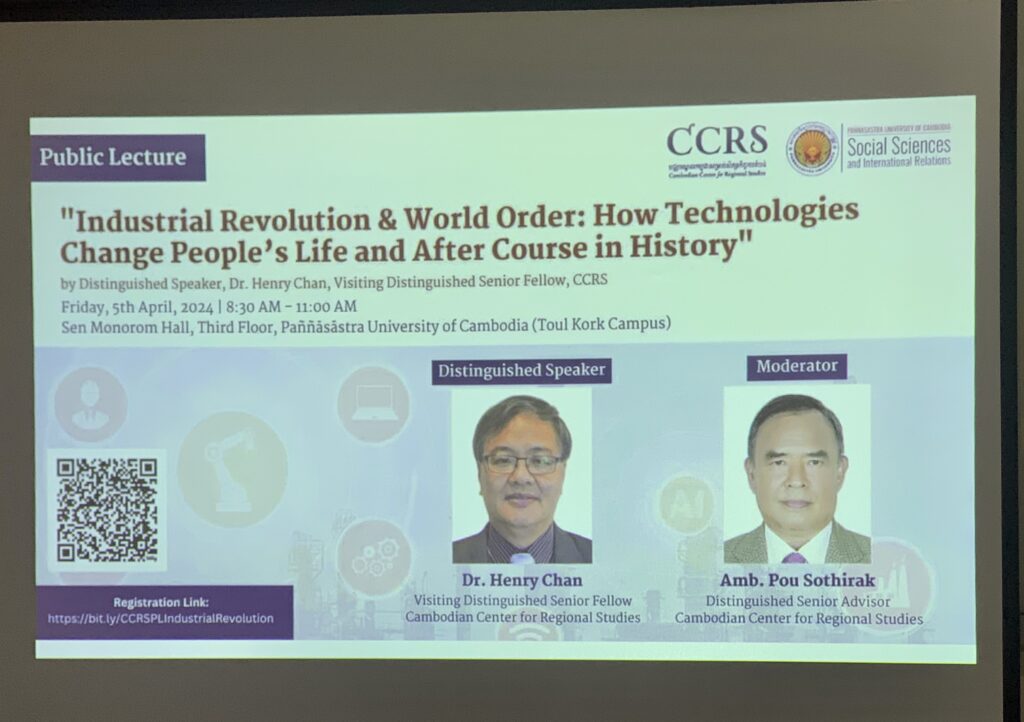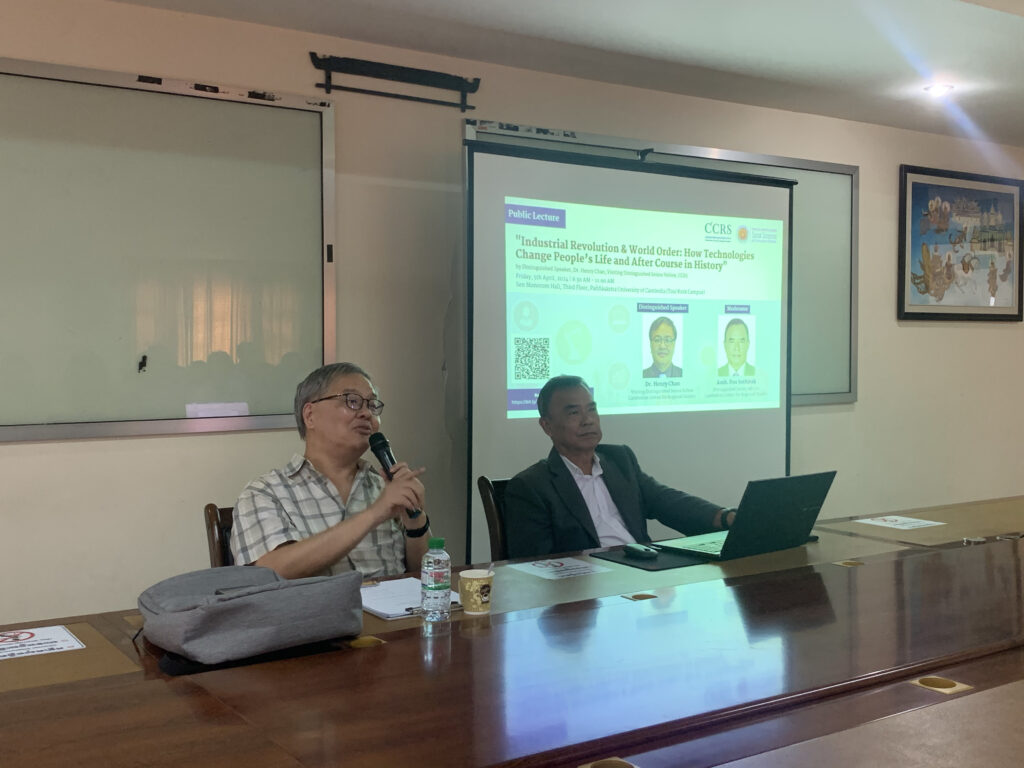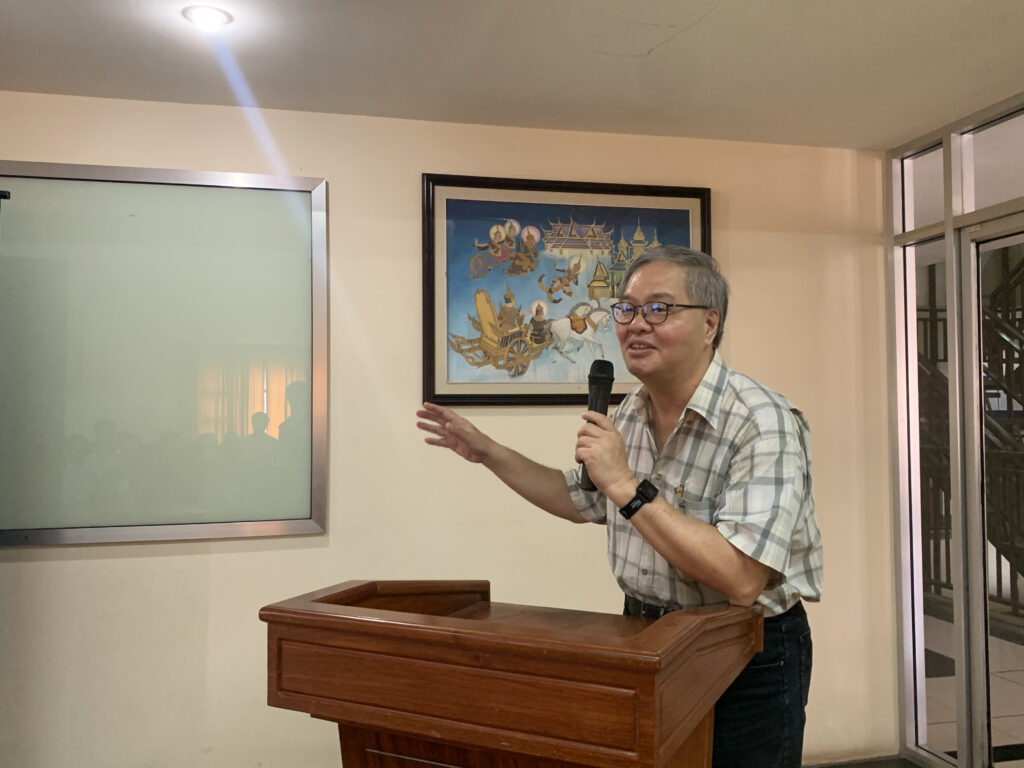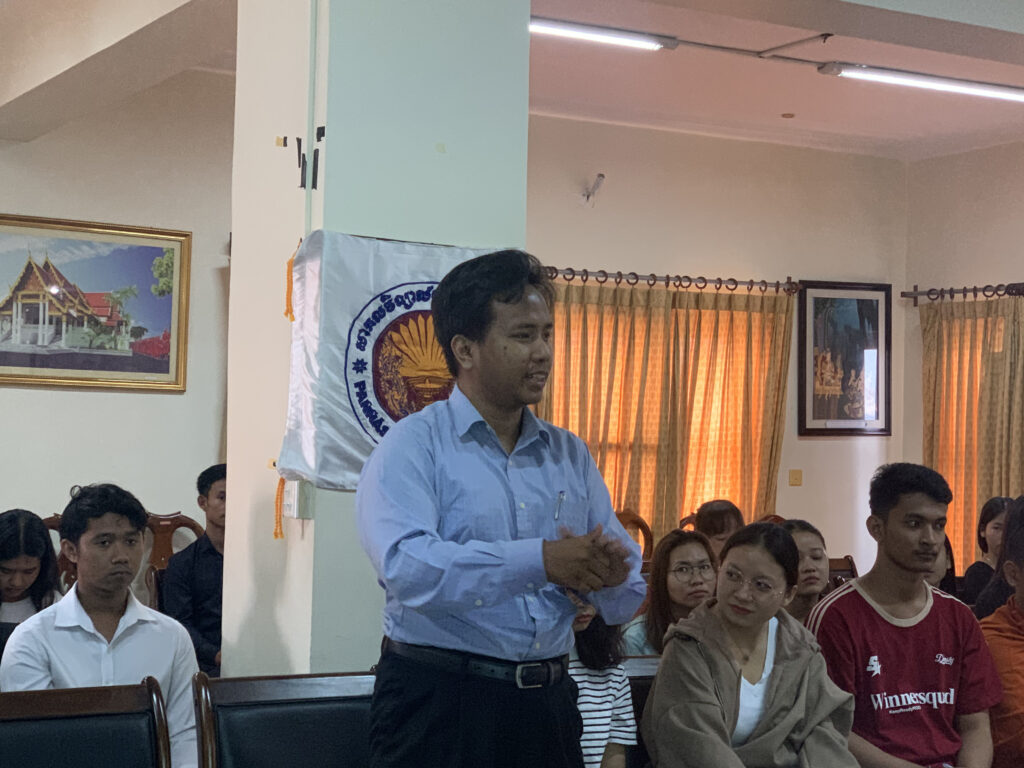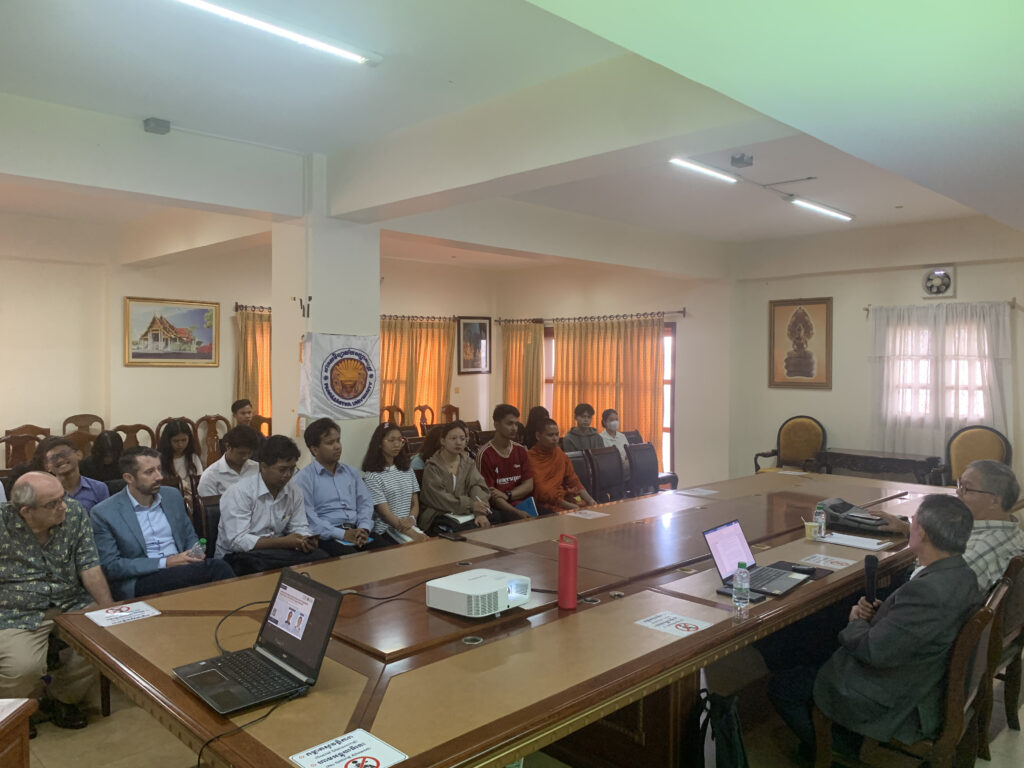On 5 April 2024, from 8:30 to 11:00 a.m., CCRS organized a Public Lecture on “Industrial Revolution and the World Order: How Technologies Change People’s Life and Alter Course of History” by Dr Henry Chan, Distinguished Visiting Senior Fellow, CCRS. Amb. Pou Sothirak, Distinguished Senior Advisor, CCRS, moderated the lecture. More than 30 participants, including CCRS researchers and PUC university students, attended the lecture.
During the lecture, Dr Chan presented the commonly agreed-upon four generations of the Industrial Revolution (IR) and its implications for the world order in various dimensions, including the geopolitical landscape, social change, and the economy.
Dr Chan began by defining the industrial revolution. According to him, innovation is a continuous process happening every day, and what differentiates an industrial revolution is the emergence of highly transformative and disruptive General Purpose Technologies (GPTs) throughout the economy during the period that significantly alters socioeconomic development and geopolitical landscape. It is crucial to study IR because new technologies could bring either “disruption or wealth enhancement” to a country, depending on how it copes with the new technologies.
IR could enhance states’ soft and hard power. For hard power, IR brings new products and improves the production efficiency of old products, boosting wealth and employment to successful adopters of IR. Historically, the newest technologies always find their way into military applications, and the country leading in the new IR transformation has always become a military power. For soft power, an innovative country always draws other countries’ admiration and boosts the IR leading states’ images, thus translating into value superiority.
Dr Chan then articulated each IR generation and its transformation effect throughout history in the table below.
| IR Generation | Signature Technology | Other Notable GPT | Period | Social Transformation | Economic Transformation | Leading Countries |
| First | Steam Engine | Textile, Iron | 1760-1860s | End of agricultural society | From artisan to specialization | Great Britain |
| Second | Electricity | Chemical, ICE Electronics | 1860s-1970s | Urbanization | Factory to Multinational | US, Germany, USSR, Japan |
| Third | Digital | Biotechnology, chips | 1980s-2010 | Digitalized world, social media | New Economy & talent focus | US |
| Fourth | AI + Connectivity+ Robotics | 2014 – ?? | Cyber-physical integration | Automation to autonomous | ?? |
Compiled by Dr. Henry Chan (2024)
He then discussed the situation in the ongoing IR from the perspective of international structure to the individualistic level. On the international structure, it is well-known that the two leading technological countries in the 4th IR are the United States and China. These two countries are currently in the strategic competition mode, which could lead to so-called de-globalization. The competition could hamper technological innovation as these countries try to impose technological development restrictions on each other.
On the state level, most countries lack the necessary institutions, strategic regulations, and infrastructures (physical and human) to maximize the benefits of the technological revolution. In addition, the lack of human capital is a serious concern for states to catch up with the new technologies in the world.
After that, there was a Q&A session. There was an interactive exchange between the distinguished speaker and the audience on various topics, including the lessons from IR and how small states like Cambodia should prepare to participate in the latest IR.
Amb. Pou Sothirak said we learned from the lecture the relationship between the Industrial Revolution and the World Order. He encouraged the participants to watch closely how the technological advancements will shape global order, including how states engage and compete with one another for innovations, how small states can harness technology, and how human lives will be impacted and improved by these trends of the 4th industrial revolution.
Amb. Pou shared key takeaways from this lecture, namely,
- The Industrial Revolution (IR) can help shift societies from slow agrarian paces to modern manufacturing societies. IR helps improve productivity, efficiency, quality of life, and economic well-being. On the other hand, IR can also help mitigate economic inequality, close urban-rural gaps,s and shake up the world order.
- Societies that can harness IR will emerge as winners in the context of rapid technological advancements and will dictate the terms and directions of the global order. Those societies will be wealthier and command more say in the global arena.
- Countries like Cambodia need inclusive institutions and strategic regulations to create a conducive environment for the development of new technologies. Cambodia also needs clear policies to guide its rightful pathways to participate in IR, such as enhancing human capital and establishinge relevant infrastructures necessary to harness opportunities from IR.
- Young generations of Cambodians have roles to play in enhancing Cambodia’s digital transformation.
CCRS expressed our appreciation to Dr Henry Chan and Amb. Pou Sothirak for the interesting and thought-provoking lecture. We also thanked Prof. Kevin Nauen, Dean of the Faculty of Social Sciences and International Relations of the Pannasastra University of Cambodia, for supporting this event. Our thanks went to all participants who attended this discussion. The lecture was concluded in a cordial atmosphere.
